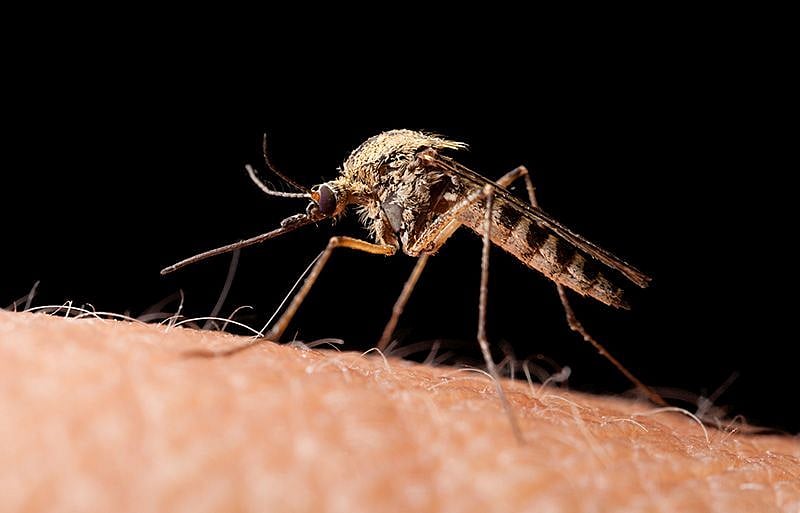Get Healthy!

- Cara Murez
- Posted August 15, 2023
Summer Buzzkill: Sorting Out Mosquito Myths & Facts
Mosquitoes can be a big pest, leaving behind itchy bumps on skin and potentially spreading serious diseases, such as West Nile virus.
Sam Telford III is a professor of infectious disease and global health at Cummings School of Veterinary Medicine at Tufts University and a commissioner for the Central Massachusetts Mosquito Control Project.
Some counties in his state have detected West Nile virus this summer, and he said the risk will peak in the next few weeks. That's why it's important to protect yourself from mosquitoes. But some products meant to deter them work, and others don't do the job.
What works & doesn't
Citronella, for example, is less effective than other products such as DEET, according to Telford.
Patio appliances that heat repellents to keep groups safe outdoors were shown to be highly effective against four species of mosquitoes.
Wearables, however, don't reduce mosquitoes' attraction to humans, Telford pointed out.
While some think wearing long sleeves and long pants will help, keep in mind that mosquitoes can bite through tight-fitting clothing if it's made of thin material. A better alternative is to wear loose-fitting clothing that has been treated with an insecticide like permethrin (0.5%). Use caution with clothing that is still wet from treatment. It is toxic to cats.
Insect repellents with active ingredients such as DEET, picaridin, IR3535 or oil of lemon eucalyptus will help protect a person from mosquitoes and other insects, he said in a university news release.
Certain products approved by the U.S. Environmental Protection Agency are safe to use on children and infants as young as 2 months of age, but read the label carefully. For infants, invest in mosquito netting to cover their outdoor spaces, like playpens or strollers, Telford advised.
Which mosquitoes will bite?
Some species of mosquitoes prefer birds or mammals, while others prefer humans.
Though scientists don't know why, mosquitoes tend to prefer humans with type O blood. Mosquitoes also search for people with higher body temperatures. Receptors in their antennae are trained to detect specific chemicals in human sweat.
Standing water is also a draw. This includes upright buckets, uncovered trash barrels and clogged roof gutters.
Eggs can hatch anywhere from a few days to several months after being laid. Overturn buckets of water. Cover barrels and keep gutters and bird baths clean.
Female mosquitoes, the smaller ones, are those to watch out for. They lay an average of 100 eggs at a time. They can get infected with viruses and parasites when they bite an infected species. And they can bite at any time, though they are more active in the dusk hours, Telford warned.
More information
The U.S. Centers for Disease Control and Prevention has more on West Nile virus.
SOURCE: Tufts University, news release, Aug. 10, 2023







